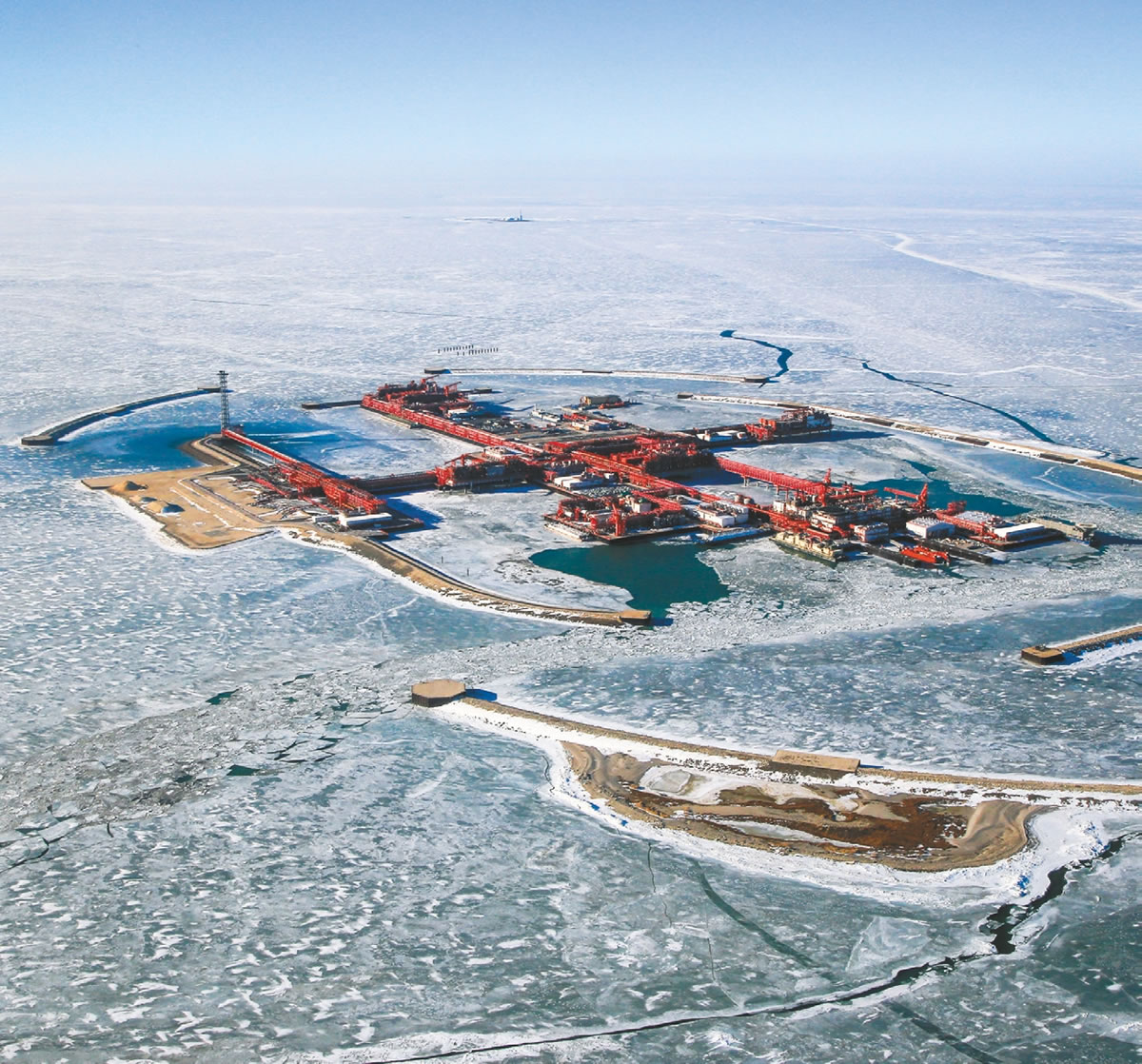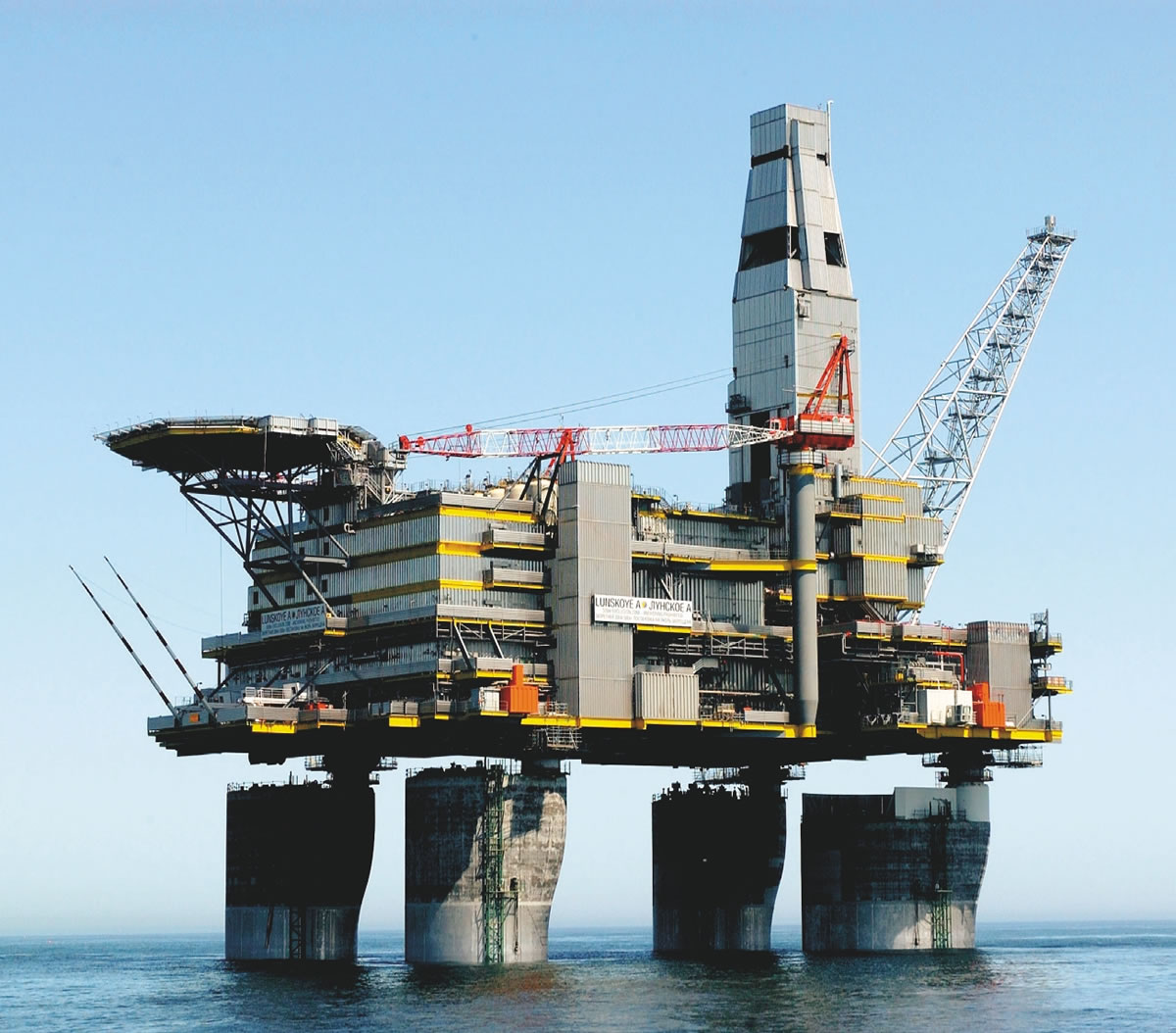Oil Chronicles
Oil Chronicles. November 2023
November

November 1, during French President Emmanuel Macron's official visit to Astana, an agreement was signed to establish a joint venture for the construction of wind power plants in Kazakhstan with a total capacity of 1 GW.
The project participants from the Kazakh side are Samruk-Kazyna (20%) and KazMunayGas (20%), and from the French side, Total Eren (60%). The implementation is planned in two phases: the first will commission a 300 MW initial capacity; the second will add the remaining 700 MW. The wind farms will be equipped with a 300 MW energy storage system, reducing the risk of grid instability due to the intermittent nature of wind generation.
Kazakhstan Petrochemical Industries Inc, a subsidiary of KazMunayGas, has begun producing a new grade of polypropylene at its petrochemical complex in the Atyrau region.
The polypropylene grade PP H031 BF/7 is used in Europe and Kazakhstan to produce polymer film packaging for food products and everyday goods.
November 3, in Moscow, deputy energy ministers from Uzbekistan, Russia, and Kazakhstan signed a tripartite agreement to more than triple the volume of Russian oil shipments to Uzbekistan through Kazakhstan's territory.
The document provides for the supply of 1 mln tons of Russian oil transiting through Kazakhstan in 2024. By the end of this year, such imports are expected to amount to 300 thousand tons of oil.
The sharp increase in oil imports from Russia will increase the production of gasoline and other oil products at Uzbek refineries, which are experiencing a raw material deficit. In addition, the agreement plans for Russian assistance in the modernization and creation of new oil processing capacities in Uzbekistan.
November 3, Kazakhstan's Minister of Energy Almasadam Satkaliyev stated that Kazakhstan could increase its oil export volumes to China tenfold if Beijing agrees to finance the expansion of the "Kazakhstan-China" oil pipeline.
The existing pipeline has a capacity of 20 mln tons per year, but it is mainly used to transfer Russian oil. Last year, about 1 mln tons of Kazakh oil and 10 mln tons of Russian oil transited through it.
The minister declared that if major fields in the western region are connected to the pipeline, oil shipments from Kazakhstan to China could increase to 10 mln tons. "We are talking about the availability of free capacities in the pipeline and the implementation of two projects together with Chinese partners to expand the sections of the 'Kenkiyak - Atyrau' and 'Kenkiyak - Kumkol' main oil pipelines, which will allow the direction of oil from the western regions," said Satkaliyev.
The Chinese side has questioned the guaranteed volume of oil. "As the ministry, we guarantee that we can provide an additional up to 10 mln tons of Kazakh oil to China. We now await the corresponding decisions from the Chinese side," the minister noted.
Rakhim Uteev has been appointed General Director and Chairman of the Board of KMG Engineering LLP (KMG Engineering). Previously, Uteev was Director of the Atyrau Branch and Deputy General Director of KMG Engineering for major projects. Holding a Ph.D. in Geological Sciences, Uteev has an extensive background, including a stint as a research fellow at the Henri Poincaré University, Centre for Mineral Resources and Energy in France, Deputy Director for Science at the Research Center of the Kazakh Institute of Oil and Gas, and Deputy Director at KazMunayGas’s Institute for Drilling and Extraction Technology. He has held leadership positions at KMG Kashagan B.V.
Gazprom plans to sign long-term agreements with Kazakhstan, Uzbekistan, and Kyrgyzstan for 15-year gas supplies by mid-2024, as announced by the company's General Director, Alexey Miller. The gas will be used for the gasification of these countries, with the potential for organizing transit to third countries.
Furthermore, Gazprom is developing a supply route from Russia to Kazakhstan to gasify Kazakhstan's northern and eastern regions.
Hungary's Foreign Minister Péter Szijjártó, who was part of the official delegation with Prime Minister Viktor Orbán in Astana, announced the arrival of 630 thousand tons of crude oil from Kazakhstan to Hungary. Additionally, Hungarian MOL will begin gas extraction in Kazakhstan.
During talks with the President of Kazakhstan, Prime Minister Orbán expressed the desire to import Kazakh oil. While current collaboration is not extensive, there is potential for future intensification, Orbán noted.
Moreover, by the end of the year, the significant Rozhkovskoye gas field in western Kazakhstan, with a $192 mln investment by MOL, will be commissioned. Szijjártó reported that MOL is expected to extract approximately 100 mln cubic meters of gas annually.
Kuralbek Keldzhanov has resigned from his position as Deputy Chairman of Shell in Kazakhstan. Before joining the company in 2008, he led party and state bodies in the Mangistau region.
November 6, at the extraordinary general meeting of shareholders of KazMunayGas JSC, former Human Rights Ombudsman of Kazakhstan Askar Shakirov was elected as a member of the board of directors and an independent director of KMG.
Shakirov graduated from the Institute of Asian and African Countries at Lomonosov Moscow State University in 1978. A professional diplomat, he held positions such as Deputy Chairman of the Parliamentary Assembly of the OSCE, Ambassador of Kazakhstan to India, and Vice Minister of Foreign Affairs. From 2006 to 2007, he led the Customs Control Committee, served as the Human Rights Ombudsman from 2007 to 2019, and thereafter was elected as a Senate Deputy and Deputy Chairman of the Senate.
November 7, the President of Kazakhstan, Kassym-Jomart Tokayev, held a meeting with Wolfgang Kropp, the General Director of Svevind Energy Group. The meeting focused on preparations for implementing a project to produce "green" hydrogen in the Mangistau region.
Wolfgang Kropp shared that preliminary project and survey work (Pre-FEED) has commenced under the investment agreement. The project envisages the construction and operation of a desalination plant, a 40 GW renewable energy station (wind and solar), and a 20 GW water electrolysis plant with an annual production capacity of 2 mln tons of "green" hydrogen or 11 mln tons of "green" ammonia. The preliminary investment amount is expected to exceed 50 bln euros.
According to Kropp, the project documentation is to be completed by 2026. Infrastructure construction is planned to start in 2027, with commissioning scheduled for 2032.
As of November 9, Samruk-Kazyna JSC's share in KazMunayGas JSC decreased by 7.69%.
National Wealth Fund of the Republic of Kazakhstan, managed by the Ministry of Finance under the trusteeship of the National Bank, purchased 46.93 mln ordinary shares of the national company worth 500 bln tenge from Samruk-Kazyna's share.
Consequently, as of November 9, the shareholders of KazMunayGas are: Samruk-Kazyna – 79.73%, National Bank – 9.58%, Ministry of Finance – 7.69%. The remaining shares are in free circulation following the IPO conducted in December 2022.
November 10, QazaqGaz announced the commissioning of the new Anabay gas field in the Moinkum district of the Zhambyl region. The subsidiary Exploration and Production QazaqGaz has developed the field, reactivated 3 drilled wells, and built the 'Anabay - Zharkum' gas pipeline.
The field boasts recoverable reserves of 4 bln cubic meters of gas. The total investment in the project was 12 bln tenge. Plans include further field drilling, with expected gas production reaching 6.5 mln cubic meters in 2023 and the production level hitting 44 mln cubic meters by 2028. The gas from the field will be directed to meet the needs of the domestic market.
November 13, Serikkali Brekeshov, Deputy Chairman of the Board of KMG, discussed prospects for constructing a gas processing plant based on the Urikhtau field's resources, implementing sludge separation technology at the fields of KazMunayGas's subsidiary organizations, and building renewable energy installations at the fields to achieve the low-carbon policy goals outlined in KMG's strategy, during negotiations in Astana with Dan Yingzi, Vice President of the Chinese corporation China Gezhouba Group Co.
CGGC's activities span 12 sectors, including hydroelectricity, renewable energy, thermal power, water supply and wastewater treatment, and construction of main oil and gas pipelines. The corporation also has extensive experience in the field of biosorption technology for oil and gas products.

Starting November 14, Kazakhstan has imposed a ban on the export of liquefied petroleum gas (LPG) by road and rail transport for a period of six months. "



